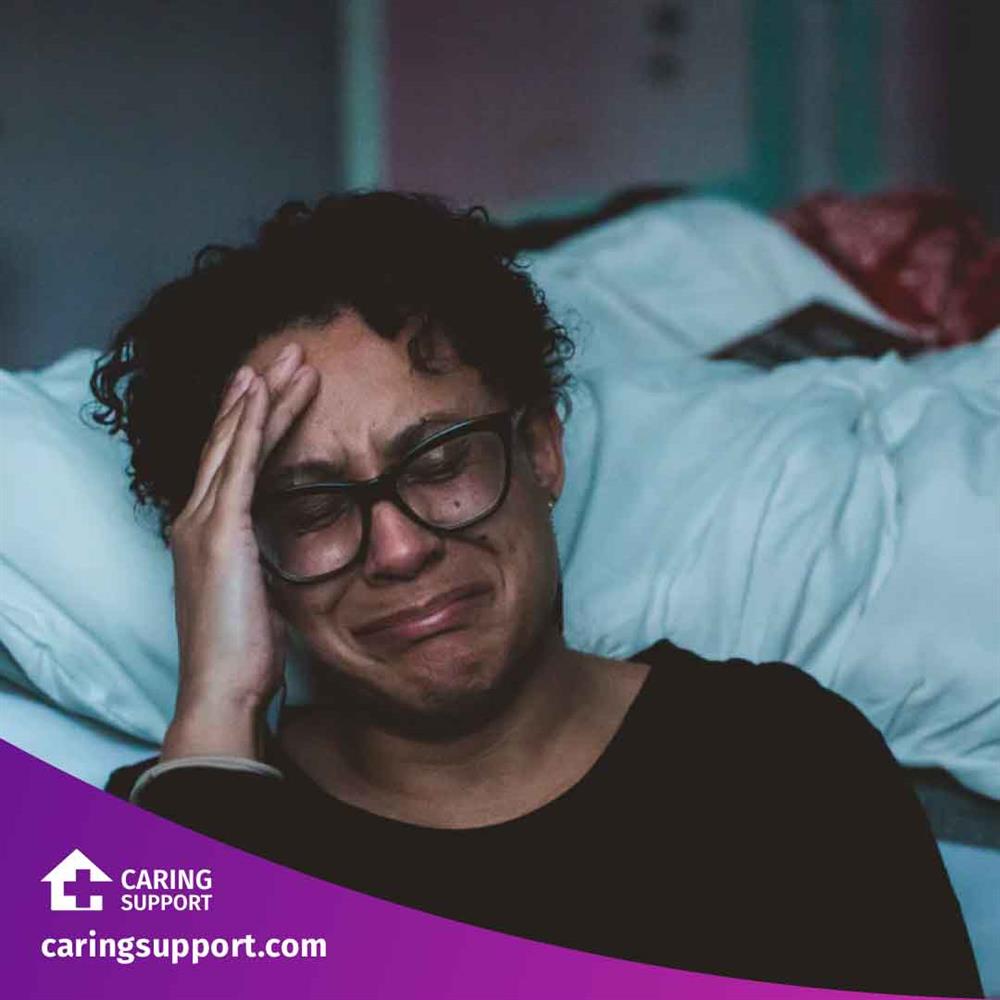Sleep deprivation is a common state in this day and age, as most adults and teens have become accustomed to reducing their hours of sleep hoping to get more done during the day. At Caring Support we know this is especially true for students and parents, but none of them lose more sleep than people in careers like caregiving and healthcare services in general.

Full-time and overnight caregivers are required to be hypervigilant almost all the time, which causes them to over-stress and keeps them from getting adequate sleep on a regular basis. Even though many of them are constantly advised by family, friends, and colleagues to take better care of themselves and sleep more, they usually ignore these well-meaning recommendations, mostly because they feel that there is no realistic way to achieve this.
As a result, caregivers are more prone than others to suffer from conditions associated with sleep deprivation like mood swings, irritability, impaired attention, aches, and weakened immune system (a cause of serious concern in times of Covid-19). Added to this, they are at higher risk of developing high blood pressure, memory issues, and the most obvious, living in constant exhaustion.
Furthermore, a sleep-deprived caregiver or healthcare worker is likely to have less patience and empathy to care for patients, both of which are essential virtues in their career paths. The reason behind this is that, since lack of sleep affects people’s emotional wellbeing, it can promote feelings of resentfulness and even anger towards their patients.
What is considered sleep deprivation?
Sleep deprivation is a condition that happens when a person does not get enough sleep, either in quantity or quality, to function well and stay healthy. Insufficient sleep can happen for many reasons, and they all lead to an inability to carry out day-to-day activities and, in the case of caregivers, to provide care adequately and safely.

Sleep deprivation disrupts the body’s ability to recharge. The condition is considered to be acute when an individual misses several hours of sleep but only for a short amount of time, like a week or so. This usually happens when a person needs to complete a lengthy task on a tight deadline, dedicate a few days to care for an ill person, or attend to any other temporary situations.
However, when sleep deprivation becomes part of a person’s routine for reasons like having taken a second job or starting to care for a person suffering from a terminal disease; it is considered chronic sleep deprivation. If this happens, brain function begins to alter, and cognitive performance decreases. This means that people who are severely sleep-deprived can reach a state of inattentiveness that doesn’t allow them to do common activities like cooking or driving without posing a danger to themselves and others. In fact, sleep deprivation is one of the main causes of car crashes in Canada, accounting for 21% of collisions, according to the Canadian Council of Motor Transport Administrators.
Why are caregivers and healthcare workers more affected by sleep deprivation than other people?
Caregiving and providing healthcare services are activities that involve spending long hours at a care facility or at home attending to patients. While some diseases and conditions allow patients to retain a certain level of independence, others like terminal cancer, dementia, Parkinson's disease, or disabilities in children require caregivers to pay their full attention to them, which leaves little time for them to get some uninterrupted rest.
Considering the levels of stress that are associated with being constantly vigilant of others, full time and overnight caregivers are more likely than other people to report feelings of burden, depression, and sleep disturbances due to only being able to sleep for short periods of time and having to constantly wake up to check up on their patients. Unfortunately, caregivers are known to minimize the effects caused by their lack of sleep and avoid bringing them up with their supervisors. This attitude is mostly attributed to feeling that their problems are not as important as what is happening to their patients.
Other reasons why caregivers experience more sleep deprivation than other people include poor sleeping accommodations because sometimes it is necessary for them to sleep next to their patients and the only available surface is usually a sofa or a chair. Excessive consumption of caffeine during work hours, feelings of constant worry about the patient (especially if the person being cared for is a family member), and having to help assist them multiple times during the night (to use the toilet, change positions or get medications), are strong reasons as well.
What can caregivers do about sleep deprivation?
Caregivers should try to get as many naps as they can, whenever they have a chance. However, they should try to avoid doing this around the late afternoon or evening unless they are working the night shift that day. Additionally, it is advisable for caregivers to go to sleep as soon as they feel sleepy and not wait for a specific time, to avoid lying awake in bed for too long.

One course of action that could benefit caregivers is talking to their supervisors about their struggles and discuss alternatives to ensure they get more hours of sleep per day. If the reason that is causing them to be sleep deprived is that their patient is unable to sleep in the first place (because of conditions like pain, shortness of breath, confusion, or restlessness), they should find a way to address these issues with the entire medical team so that both of them can rest. And if the reason is more personal, caregivers should try to identify the cause of their worries and maybe look for support in a counselor, social worker, or even a spiritual guide, if they choose to do so.
Finally, caregivers shouldn’t feel ashamed about asking for help. Counting on someone to cover for them for a few hours while they rest, even if it is just two times per week, will make them feel so much better.
Source: https://www.caringsupport.com/blog/why-is-sleep-deprivation-so-common-among-caregivers